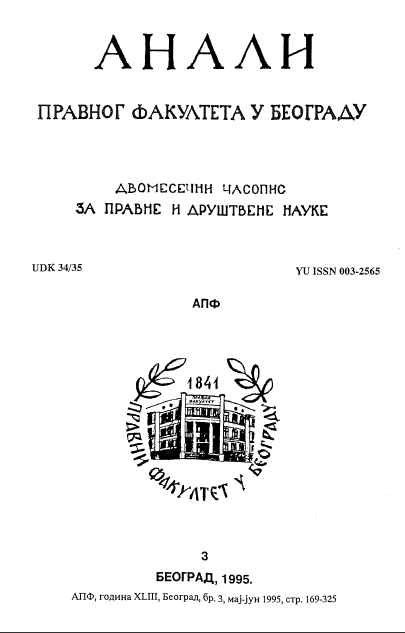КРИВИЧНА ОДГОВОРНОСТ ПРАВНИХ ЛИЦА И ПРИВРЕДНИ ПРЕСТУПИ: ДА ЛИ JE РАЗЛИКОВАЊЕ САМО ТЕРМИНОЛОШКЕ ПРИРОДЕ?
CRIMINAL LIABILITY OF LEGAL ENTITIES AND ECONOMIC INFRACTIONS: IS THE QUALIFICATION ONLY OF A TERMINOLOGICAL NATURE?
Author(s): Ivana Simović HiberSubject(s): Criminal Law, Law on Economics
Published by: Правни факултет Универзитета у Београду
Keywords: Legal entity; Criminal offense; Economic infraction; Criminal liability of legal entity
Summary/Abstract: A clear necessity of contemporary society to establish a tort liability of legal entities gave rise to various conceptions and solutions. The most general distinction is The one of the solutions making for some forms of para-penal liability and the solutions accepting direct criminal-law liability. Distinguishing between these concepts may be primarily of a terminological nature since this is suggested by historical parallel according to which societas delinquere potest was a fact. Departing from that principle is related to great codifications in the nineteenth century, which have established the individualist concept of the notion of criminal offence. I lowcvcr, the need for punishing legal entity has been identified already at the beginning of the present century’ in European continental law (Anglo-Saxon law already had its approach). There are numerous theories as to how this is impossible or how the problem should be solved, but all of them begin with anihropomorphically conceived notion of criminal act, liability, and punishment. Practical problem has been dispensed with through the choice of some form of para-penal (administrative, civil, fiscal) liability. The concept of Yugoslav law is the construction of economic infraction, as a new form of tort, termed in theory as "a middle category". Il has a double-fold nature: offense ofa legal entity and a particular category'of physical,.so-called responsible persons. Liability in either oflhese categories is not subsidiary, the argument goes on to state that a criminal act may be committed only by individual, while infraction also by a legal entity; such liability is of objective nature as far as legal entity is concerned; it may be prescribed also by a decree. New French Criminal Code, however, provides for direct criminal liability of legalentities. It is cummulativc (includes that of the physical person), special (only for some offenses), and made dependent on some circumstances (act committed for the account of a legal entity and by a responsible, authorized person). Special system of sanctions is also provided for. In such a way the French system preserves the unity of the penal system and the principle of nemo crimen sine legepraevia.
Journal: Анали Правног факултета у Београду
- Issue Year: 43/1995
- Issue No: 3
- Page Range: 210-224
- Page Count: 15
- Language: Serbian

